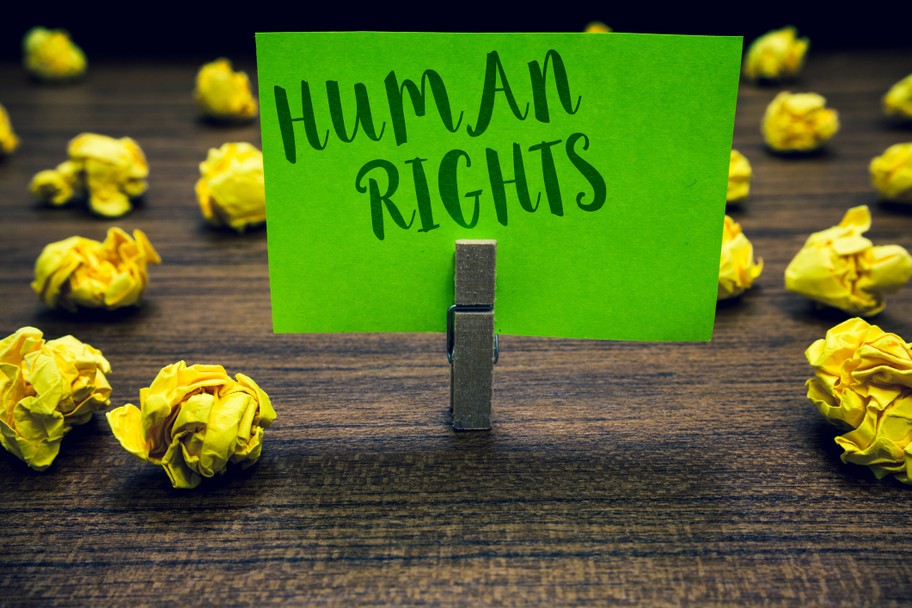The Eighth Commandment, “Do not Steal,” is unique in that it encompasses all the other commandments on the second tablet: Murder is the stealing of another person’s life.
Adultery is the stealing of another person’s spouse. Giving false testimony is stealing justice. And coveting is the desire to steal what belongs to another person. This commandment is unique in another way: It is the only completely open-ended commandment. All the other commandments are specific. The Fifth Commandment, for example, states whom one must honor—one’s parents. The Sixth Commandment, prohibiting murder, is only about taking the life of an innocent human being. The Seventh Commandment, prohibiting adultery, is also specific to a married person; two unmarried people cannot commit adultery.
But the commandment against stealing doesn’t even hint at what it is we are forbidden to steal. It means we cannot take anything that belongs to another person.
Photo Courtesy: ©GettyImages/pcess609

1. Stealing Human Beings
This commandment was always understood to mean, before anything, we are not allowed to steal human beings. The early rabbinic tradition interpreted this commandment as specifically referring to kidnapping.
That is one reason no one with even an elementary understanding of the Eighth Commandment could ever use the Bible to justify the most common manner by which people became enslaved: kidnapping.
Kidnapping and the Bible
Kidnapping people and selling them into slavery, as was done to Africans and others throughout history, is forbidden by the Eighth Commandment. Critics of the Bible who argue the Bible allowed such slavery, and defenders of such slavery who used the Bible, were both wrong.
And lest there be any confusion about this issue, the very next chapter of the Torah specifies a person who kidnaps another—particularly when done with the intention of selling the victim into slavery - “shall be put to death.” (Exodus 21:16).
2. Stealing Property
Of course, the most obvious meaning of the Eighth Commandment is a prohibition against stealing property—and that, in turn, means God sanctifies personal property. Just as we are forbidden to steal people, we are forbidden to steal what people own.
It has been shown over and over that private property, beginning with land ownership, is indispensable to creating a free and decent society. Virtually all tyrannies, especially totalitarian regimes, take away private property rights. And in the ancient and medieval worlds, almost no one had property rights: a few rich people owned all the land.
Then, in nineteenth-century Europe, many socialists argued for confiscating private property and giving it to the “people.” Where that advice was followed, in what came to be known as the communist world, theft of property quickly resulted in a total theft of freedom, and ultimately a massive theft of life.
Photo Courtesy: ©GettyImages/Artur

3. Stealing Another Person's Reputation, Dignity, etc.
Another enormously important meaning of the commandment against stealing concerns stealing the many non-material things each person owns: his or her reputation, dignity, trust, and intellectual property.
A person’s reputation: Stealing a person’s good name—whether through libel, slander, or gossip—is a particularly destructive form of theft. Unlike money or property, once a person’s good name has been stolen, it can almost never be fully restored. As Shakespeare put it in Othello: “Who steals my purse steals trash; ‘tis something, nothing, ‘twas mine, ‘tis his. . . . But he that filches from me my good name robs me of that which not enriches him and makes me poor indeed.” In Othello, the theft of Desdemona’s good name leads to her murder.
Stealing a Person's Dignity
The act of stealing a person’s dignity is known as humiliation. And humiliating people, especially in public, can do permanent damage, given that dignity may be the most precious thing we own.
Stealing a Person's Trust
Stealing a person’s trust is what we know as deceit. In fact, a Hebrew term for deceiving someone uses the term stealing (g’neivatda’at), which literally means “stealing knowledge,” or “stealing another’s mind.” An example is the tricking of people into buying something, as when a real estate agent omits telling a prospective purchaser about the flaws in a home in order to make a sale. Another example would be when someone deceives another person with insincere proclamations of love in order to obtain material or sexual favors. He or she has stolen from the person knowledge about their true intentions.
Photo Courtesy: ©Getty Images/MangoStar_Studio

Stealing a Person's Intellectual Property
This form of theft includes anything from copying software or films, to downloading music and movies without paying for them, to stealing a person’s words (plagiarism). In a major moral statement emphasizing how right and important it is to cite the source of an idea or a quote, the Mishna says, “A person who quotes a statement in the name of the person who stated it brings redemption to the world.”
Why would this act “bring redemption to the world”? Because when people cite the source of an idea or statement they quote, they are declaring they value truth over ego; and a world that values truth over ego would indeed be a redeemed world. Conversely, when we do not cite the source of a quote—or idea, or a humorous line—we are stealing that quote or idea from the person who came up with it. Amazingly, at least in America, people actually admit it. I have been told any number of times after a speech, almost always by honorable people, “I’m going to steal that idea from you!” They don’t realize how literally true their statement is.
Damage of Stealing
Stealing a life, a person, a spouse, material property, intellectual property, a reputation, dignity, or trust: there is hardly any aspect of human life not harmed—sometimes irreparably—by stealing. It is fair to say if everyone observed only one of the Ten Commandments, observing the commandment “Do Not Steal”—with all of its manifold implications—would, by itself, make an ethically decent world.
Societal Corruption
There is another reason why stealing may well be the ultimate root of most evil. That reason is: corruption. Virtually every society in history, and most societies in the world today— certainly non-democratic ones—were and are filled with corruption. People pay government officials for favors; government officials get rich selling state companies and contracts; individuals pay police or government officials to avoid prosecution; judges are bribed to twist verdicts (a practice specifically banned in the Torah—Exodus 23:8); schools and officials are bribed to get a son or daughter into a prestigious university; and so on.
More than anything else, it is widespread corruption that makes it impossible for a society to progress politically, morally, or economically.
Photo Courtesy: Alejandro Escamilla/Unsplash
Originally published April 05, 2018.







